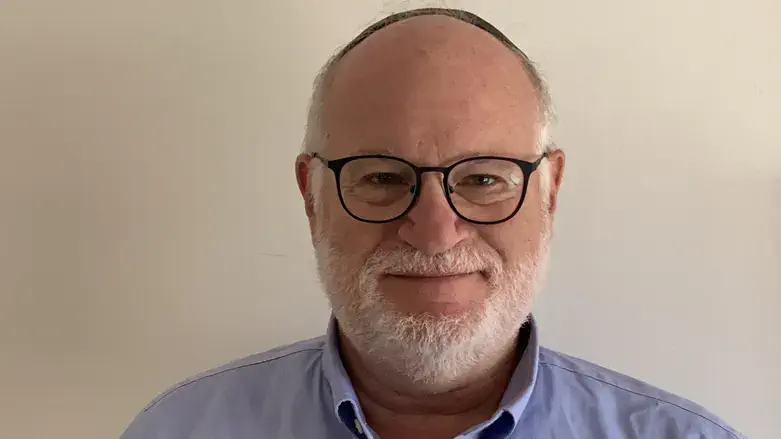
When will we Jews learn to take the Torah seriously?
There are Jews who perceive the Torah as all rituals, filled with virtuous deeds that make us better people, but who derive their values from alien sources. Others embrace the lofty ideas that the Torah articulates but prefer to implement them in ways they fabricate relying on their own judgment. But we are taught that the Torah is “your life and the length of your days to dwell on the land that G-d swore to give to your forefathers” (Devarim 30:20).
The privilege of living in the land of Israel is dependent on our fidelity to Torah – and that is made abundantly clear in an unexpected but revealing way, and quite relevant to current events – in this week’s Torah portion of Shoftim (ibid 20:10-12) where the Torah delineates how we should conduct our wars.
“When you approach a city to wage war against it, you must first propose peace to it. If it responds with peace and opens its gates to you, then the people therein become tributary to you and serve you. And if the city does not make peace with you and wages war against you, you must besiege it.”
Rashi, citing the Sifrei 200:5, defines a siege: “you are entitled even to starve it, to make it suffer thirst and to kill the inhabitants by mortal diseases.” That is a siege, and that is a key to victory. That shows the enemy strength and resolve and is designed to induce unconditional surrender which spares lives on both sides.
Rashi, on a previous verse, notes that this tactic applies to an “optional war,” for conquest; how much more so would this apply to a war of self-defense forced upon us by a brutal and evil enemy that invaded our land, murdered innocent civilians, raped our women, pillaged, ravaged, and kidnapped as many of our people as it could.
Was the Torah concerned about the welfare of enemy civilians? In a word, no, except to declare that all their suffering could be averted by surrender of the hostile forces.
Instead of adopting the Torah’s approach of besieging a city with starvation, thirst, and the spread of disease, we have embraced the opposite approach, and then complain when the war drags on, our soldiers are killed, and our hostages suffer privation and death. Instead of “starvation” we provide our enemy with food, instead of “thirst” we furnish them with copious amounts of water and fuel, and instead of “spreading disease” we inoculate them against the polio virus. In its worst corollary, we give the enemy everything they are depriving our hostages.
Rather than make the enemy surrender, succumb, and become subservient to us, we argue amongst ourselves how quickly to (again) abandon Gaza. And we wonder why we have fought over Gaza seven times and never succeeded in achieving any resolution. It is because we have scorned the Torah, hear the above verses without considering their relevance to us, and think that the Torah is silent on the conduct of war.
We think that the problem will just go away. Here again Rashi counsels us otherwise. “If you don’t make peace with it, it will eventually make war against you,” to which Rashi comments, “Scripture is informing you that if the enemy does not make peace with you, it will in the end make war against you. If you leave it alone and go away [you will solve nothing and only hasten an attack against you].”
That has been the Gazan reality for almost seventy years, except when we controlled Gaza. Whenever we “leave it alone and go away,” it becomes a nest of terror and a springboard for deadly attacks on Jews. It would be sobering to say that we have learned this lesson the hard way but, unfortunately, we have not yet learned that lesson at all.
Far be it from me to advocate a siege against Gaza, which would violate the chimera known as “international humanitarian law,” most forcefully utilized as a weapon against Israel and only Israel in the world’s effort to thwart an Israeli victory. An unlikely voice has emerged who articulates similar thoughts – retired Israeli General Giora Eiland, former head of the National Security Council, and, ironically, one of the architects of the expulsion of Jews from Gaza in 2005.
Eiland said this week that Israel should cut off northern Gaza, evacuate all non-terrorist residents, and impose a siege on the territory to starve out the several thousand terrorists hiding there. They will be given a choice – “surrender or death” – and he suggests that such is compatible with international humanitarian law once the civilians leave. If the civilians choose to stay, then they suffer the same fate. “And this is the optimal way to end a war with the minimum number of casualties.”
Many months ago, Eiland expressed similar sentiments in even stronger language: “What happened on October 7 is that the State of Gaza went to war against the State of Israel. State against state. Now, the state of Gaza does have vulnerabilities. It doesn’t have sufficient fuel, food, and water of its own. You can impose a legitimate boycott on that state until the state returns all of your hostages. Humanitarian for humanitarian.”
The reluctance to fight this war along these lines was an epic mistake, notwithstanding the pressure from the US and others to prioritize Gazan civilians over the fate of our hostages or the welfare of our soldiers. We should have pushed back against the West’s bathetic but depraved ideas of war at the very beginning – but even now it is not too late.
Continuing to supply Hamas with food, water, and fuel pursuant to the illusion that this material is reaching the civilian population just prolongs the war. It also fosters the impression among Gazans that Hamas is still in control. That is no way to win a war.
In truth, as the Talmud (Bava Kamma 46b) puts it, “why do I need a verse? It is logical!” We should not need the Torah to teach us the obvious point that strengthening our enemy during a war or abandoning the territory we have conquered is no way to win. And yet, apparently, we do need the Torah even for that – to teach us the Jewish ethic of war, to teach us how to wage war, and to teach how even to bring our enemies to reconciliation and peace.
There are no shortcuts and no guarantee of short-term success. After several millennia of existence, we are still learning that we forsake the Torah at our peril, that a complete and wholehearted commitment to Torah is, indeed, our lives, the length of our days, and the only tried and true formula for our eternal sovereignty over the land of Israel. We should take it seriously – during this month of Elul and thereafter.
Rabbi Steven Pruzansky, Esq. was a pulpit rabbi and attorney in the United States and now lives in Israel where he teaches Torah in Modiin, serves as the Senior Research Associate for the Jerusalem Center for Applied Policy and as the Israel Region Vice-President of the Coalition for Jewish Values, and is the author of “Repentance for Life” (Kodesh Press, 2023).
